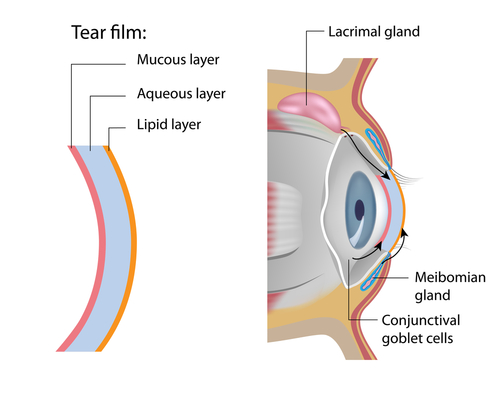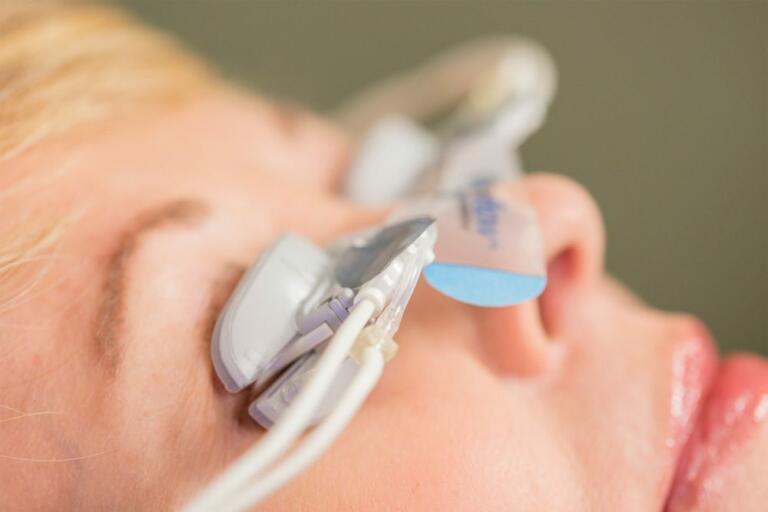How Do You Treat Dry Eyes?
April 11, 2024
Have you ever noticed that your eyes feel dry? Dry eyes are a sensation most people deal with occasionally, but what do you do if your dry, itchy eyes don't go away?
Sometimes, you might have drier eyes because you're in a new place with less humidity. In other cases, dry eyes could be a symptom of another eye condition.
Discovering the cause of dry eyes and treating the issue is crucial to your comfort. Keep reading to learn how to treat your dry eyes and how to get the relief you need most!
What are Dry Eyes?
 Dry eye, or dry eye syndrome, is a condition that impacts the layers that cover and protect your eye's surface. These three layers are called the tear film.
Dry eye, or dry eye syndrome, is a condition that impacts the layers that cover and protect your eye's surface. These three layers are called the tear film.
These films should be stable and well-lubricated to allow you to see clearly. But, when the tear film gets disrupted, it can lead to annoying symptoms such as watering, itching, and burning eyes.
The tear film can be disrupted in many ways, but dry eye syndrome occurs when the eyes don't produce adequate lubrication. This can happen because the eyes don't create enough tears, the tears evaporate too swiftly, or a combination of these two factors.
Why Does Dry Eye Develop?
Dry eyes can have several causes and risk factors, making them a complex eye condition that often requires treatment from an ophthalmologist.
If you have dry eyes, the best thing to do is see an ophthalmologist to help diagnose the underlying cause. Determining why you have dry eyes and treating the root issue can take time.
Some of the most common root causes of dry eye include:
Diabetes
Around half of people with diabetes develop dry eye symptoms.
Environmental Factors
The weather and climate can impact how healthy your eyes are and your ability to produce tears.
Lifestyle Factors
Factors like smoking, screen use, and wearing contacts can also increase the likelihood of developing dry eyes.
Medications
Some medications, such as those for allergies, glaucoma, high blood pressure, and chronic pain, may cause dry eyes as a side effect.
Other Medical Conditions
If you have Sjögren's syndrome, thyroid eye disease, or other endocrine diseases, you have a higher risk of developing dry eye.
Surgical Procedures
Some surgical procedures, like LASIK, increase the risk of developing dry eye.
Because many factors can cause or contribute to dry eyes, it is vital to work with your ophthalmologist at Whitten Laser Eye to determine what's wrong and treat the symptoms.
What are the Symptoms of Dry Eye?
While many people have experienced dry eye symptoms occasionally, you might not realize what is happening. Having a good idea of the signs and symptoms of dry eye is essential so you can receive treatment if you need it.
The most common symptoms of dry eye include:
- Feeling like there's something in your eye that won't come out
- Noticing gritty or scratchy sensations
- Dealing with burning or stinging in your eye
- Finding yourself more sensitive to light
- Discovering mucus in and around your eyes
- Seeing changes to your vision, including blurriness
- Having watery eyes and excess tears
One question many patients have is why dry eyes cause watery eyes. While this may not seem logical, watery eyes are a common side effect of dry eye.
Watery eyes occur when your meibomian glands don't make enough oil for the tear film. This causes the tear film's middle, more watery layer to evaporate, leading to an overcompensation from your lacrimal glands.
When this happens, having dry eyes causes other parts of your eyes to go into overdrive to make up for the lack of lubrication occurring.
Treatment For Dry Eyes
There are various treatment options for dry eyes. The first step is finding the underlying cause of your dry eyes and seeing if any lifestyle or medical adjustments can alleviate the problem.
Many eye doctors start patients with eye drops to treat dry eyes. However, more lasting solutions can help alleviate symptoms available at Whitten Laser Eye.
These include the LipiScan diagnostic and LipiFlow treatment for a longer-lasting treatment for dry eye symptoms.
What are LipiScan and LipiFlow?
With LipiScan technology, we use a diagnostic device to view the affected glands in your eye. This process is comfortable and minimally invasive, allowing us to check your eyes at Whitten Laser Eye during your appointment.
If you're diagnosed with dry eyes with LipiScan, we use the FDA-approved LipiFlow to treat dry eyes without eye drops. This treatment option addresses the meibomian glands using gentle massage and heat to increase gland secretions.
This treatment is also painless and comfortable. It only takes 12 minutes and doesn't require medications or numbing.
Request an Appointment Today
While dry eyes may occasionally annoy some, they can negatively impact others. Dry eyes can also indicate other underlying eye or medical problems, so it's crucial to see your eye doctor if you have recurring eye issues.
Do you have dry eyes? Request your appointment at Whitten Laser Eye at one of our convenient locations in Charlotte Hall and Chevy Chase, MD. Why wait if you could finally alleviate your symptoms and feel better?



